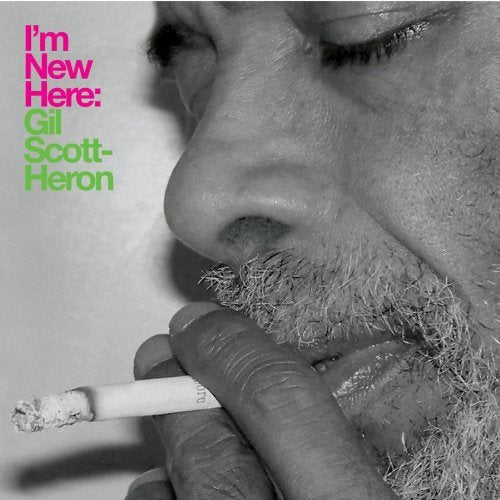คู่มือสำหรับกิล สก็อต-เฮอรอน
เพลงของกวี/นักดนตรีผู้ปฏิวัติมีความสำคัญมากกว่าที่เคย
หากชื่อ Gil Scott-Heron ไม่คุ้นเคยกับคุณทันที แน่นอนว่ากลอนของเขาจะเป็นที่รู้จัก สกอตต์-เฮอรอน เป็นกวีเพลงบลูส์และแจ๊สที่โด่งดังในปี 1970 ผ่านการแสดงความคิดเห็นทางสังคมและการเมืองที่ลุ่มลึกและกัดเซาะอย่างเหลือเชื่อ ทำให้เขาได้สร้างบทกวีที่โด่งดังที่สุดตลอดกาล: “The Revolution Will Not Be Televised.” เป็นการตีความที่ชาญฉลาดต่อการบริโภคในระดับมวลชนและความโลภของทุนนิยมที่มองข้ามความทุกข์จริงและการก่อกบฏที่เกิดขึ้นในขอบเขตของสังคม บทกวีที่มีอิทธิพลต่อฮิปฮอป/แร็พและมีการใช้ในโฆษณาและตัวอย่างหนังในปีนี้ (เช่น ตัวอย่าง Black Panther).
ดนตรีและกวีของ Gil Scott-Heron เป็นภาพสะท้อนของประเทศที่อยู่ในความยุ่งเหยิง: ยังคงรู้สึกช็อกจากการฆาตกรรมของ MLK, Malcolm X และ JFK, สงครามเวียดนามและการบาดเจ็บทางจิตใจของชีวิตในเมืองใหญ่ ผลงานของเฮอรอนเลื่อนลอยไปมาระหว่างความโกรธ การดูแคลน การประชดประชัน ความเศร้า ความมืดมน ความเกรี้ยวกราด และความไม่สบายใจ เฮอรอนวาดภาพวิสัยทัศน์ของชนชั้นต่ำที่ถูกกดดันมาเป็นเวลานานและเกือบจะระเบิด และมันยากที่จะไม่เห็นความคล้ายคลึงกับการต่อสู้ของปี 2017 เมื่อประเทศยังคงทำลายตัวเอง.

Small Talk at 125th and Lenox
อัลบั้มแรกของ Scott-Heron, Small Talk at 125th and Lenox, เปิดตัวในปี 1970 โดยรวมถึง “The Revolution Will Not Be Televised” และการแสดงความคิดเห็นทางสังคมที่น่าเกลียดและตรงไปตรงมามากมายในบทกวีอย่าง “Whitey On The Moon” และ “Comment #1”; ซึ่งเป็นบทกวีที่หลายคนอาจรู้จักว่า Kanye West ได้ยืมเสียงไปใน My Beautiful Dark Twisted Fantasy. แสดงสำหรับผู้ฟังกลุ่มเล็กในสตูดิโออัดเสียง, Small Talk ใช้เนื้อเพลงที่โหดร้ายของ Heron ร่วมกับจังหวะจากกลองคอนโก้ แต่ก็ยังมีแผ่นเสียงโซลเช่น “Who’ll Pay Reparations On My Soul” ซึ่งเป็นการปฏิเสธอันเศร้าสร้อยต่อการปฏิบัติต่อคนดำในอเมริกา. Heron สามารถทำให้รู้สึกเปราะบางและก้าวร้าวได้ในวิธีการนำเสนอ; ซึ่งอาจจะไม่ใส่ใจและไม่สนใจ แต่ก็มีอารมณ์ร่วมเสมอ.

Pieces Of A Man
Gil Scott Heron เป็นศิลปินที่ดิบและดึงดูด แต่เมื่อเขาปล่อย Pieces Of A Man ในปี 1971 ความมีอิทธิพลและพรสวรรค์ที่แท้จริงของเขาส่องแสงจ้า Pieces Of A Man เป็นการผสมผสานระหว่างบลูส์, แจ๊ส และสไตล์เสียงที่ในที่สุดจะพัฒนากลายเป็นแร็ป. Heron ร่วมกับนักดนตรี Brian Jackson ได้เปลี่ยนจังหวะธรรมชาติของเขาและการวิเคราะห์สังคมและการเมืองที่คมชัดให้กลายเป็นบลูส์ที่เต็มไปด้วยจิตวิญญาณซึ่งได้รับการรับรองอย่างกว้างขวางและกลายเป็นอิทธิพลสำคัญต่อฮิปฮอป. นอกเหนือจากการเมือง, Pieces Of A Man ยังมีความเป็นส่วนตัวและเปราะบางอย่างลึกซึ้ง. “Home Is Where The Hatred Is” เป็นบลูส์ที่เว้าร้องความเจ็บปวดและความเศร้าโศก, ขณะที่เพลงชื่อเดียวก็จับความรู้สึกของความพ่ายแพ้และการสูญเสียตัวตน โดยเสียงหวานเหงาของ Heron เคลื่อนที่เหมือนคลื่นในมหาสมุทร, ได้อย่างมีประสิทธิภาพในการจับภาพการต่อสู้และความเจ็บปวด. Pieces Of A Man เป็นการแสดงศักยภาพของ Heron ในฐานะนักร้องและนักดนตรี โดยน้ำหนักที่เสียงของเขาสื่อสารถึงความเศร้าโศกและการสิ้นหวังของชีวิตในช่วงเวลาที่วุ่นวาย.

*Free Will*
อัลบั้มถัดไปของ Heron, Free Will, ผสมผสานสไตล์ที่ก้าวร้าวและเข้าใจยากของ Small Talk เข้ากับการผสมผสานระหว่างแจ๊สและบลูส์ใน Pieces Of A Man. Free Will มีการแร็ปแบบโปรโตมากขึ้นเกี่ยวกับความยากจน, การเหยียดเชื้อชาติในสถาบัน และการละเมิดอำนาจโดยผู้มีอำนาจขณะยังคงผสมผสานการผลิตที่เต็มไปด้วยจิตวิญญาณและมีพลังซึ่งทำให้ Pieces Of A Man สวยงาม. Free Will จะเป็นหนึ่งในครั้งสุดท้ายที่ Heron จะมุ่งเน้นไปที่บทกวีเชิงก้าวร้าวปฏิวัติแทนที่จะเป็นความเป็นเอกภาพของคนดำสัญชาติแอฟริกัน ในขณะที่ยังคงร้องเพลงเกี่ยวกับความซับซ้อนและความเจ็บปวดของการมีชีวิตอยู่.

Winter In America
ในอัลบั้มถัดไปของเขา, Winter In America, Heron เริ่มทำบันทึกแนวแจ๊สฟิวชั่นและแนวคิดที่มุ่งเน้นไปที่ความเป็นแอฟโฟรเซนทริซิตี้, ความรัก, ความเจ็บปวด และการติดยา. ธีมเหล่านี้จะดำเนินต่อไปจนถึงเพลงอื่นๆ ที่เขาทำจนถึงการเสียชีวิตอย่างกระทันหันในปี 2011. การตอบรับจากนักวิจารณ์ถือว่า Winter in America เป็น ผลงานที่ยิ่งใหญ่ที่สุดของ Heron และ Jackson ร่วมกัน-- ซึ่งให้แบบแผนที่สร้างอิทธิพลต่อเพลง neo soul และฮิปฮอป. Winter in America เสียงคล้ายกับชื่อของมัน: บุคลิกของโศกนาฏกรรม, เศรษฐกิจ และความวิตกกังวลทางการเมืองในช่วงเวลาที่มันถูกบันทึก.

I’m New Here
หลังจากการถูกจับเข้าคุกซ้ำแล้วซ้ำเล่าด้วยข้อหายาเสพติดตลอดทศวรรษที่ผ่านมา, Gil Scott Heron กลับมาในปี 2010 พร้อมกับชุดเพลงบลูส์ที่ดึงดูดใจสำหรับยุคสมัยใหม่. เสียงบาริโทนที่อ่อนโยนของเขาได้กลายเป็นที่แข็งแกร่งและน่าขนลุกมากขึ้นแต่ก็ยังคงมีความหลุดใหล. เวลา, ความโศกเศร้า และยาเสพติดทำให้เขาอ่อนแรงทางกายภาพ แต่เขายังมีสิ่งที่จะพูดเกี่ยวกับสังคมและกับดักของชีวิตในแนวดนตรีฮิปฮอปที่กระชับและเสียงดนตรีที่ซับซ้อนน้อยในเพลงที่งดงามและบทกวีอย่าง “Me and The Devil” และ “Where Did The Night Go”. แต่เพลงที่โดดเด่นในอัลบั้มคือ “I’ll Take Care of You” ซึ่งจะถูกนำมาโดย Drake และ Rihanna สำหรับเพลง “Take Care.” อัลบั้มจะถูกรีมิกซ์โดย Jamie XX ในปีถัดไปหลังจากที่ Scott-Heron เสียชีวิต; ทั้งสองเวอร์ชั่นถือว่ามีคุณค่า.
มรดกทางดนตรีและการปราศรัยของ Heron นั้นยาวนาน, มีอิทธิพลและเป็นตัวแทนของยุคที่เป็นการบันทึก. แต่ผลงานในช่วงต้นของ Heron --ผลงานที่เป็นก้าวร้าวและเปราะบางเกี่ยวกับความทุกข์และผู้ที่ต้องทนทุกข์จากมัน-- เป็นสิ่งที่ทนต่อการทดสอบเวลา. ในปี 2017, ผลงานของเขายังคงมีน้ำหนักเท่าเดิมกับในช่วงต้นทศวรรษที่ 70. ผลงานของ Gil Scott Heron จะวางรากฐานสำหรับแร็ป, ในขณะเดียวกันก็ทำหน้าที่เป็นภาพถ่ายสำหรับอเมริกาที่ยังคงทำผิดพลาดเดิมซ้ำแล้วซ้ำเล่า. เพลงและบทกวีของเขามีความสำคัญมากขึ้นกว่าเดิม.
Israel Daramola เป็นนักเขียนและช่างภาพอิสระในวอชิงตัน ดี.ซี.. เขาแค่ต้องการเขียนเกี่ยวกับพังก์และโลกเฉพาะทาง.

